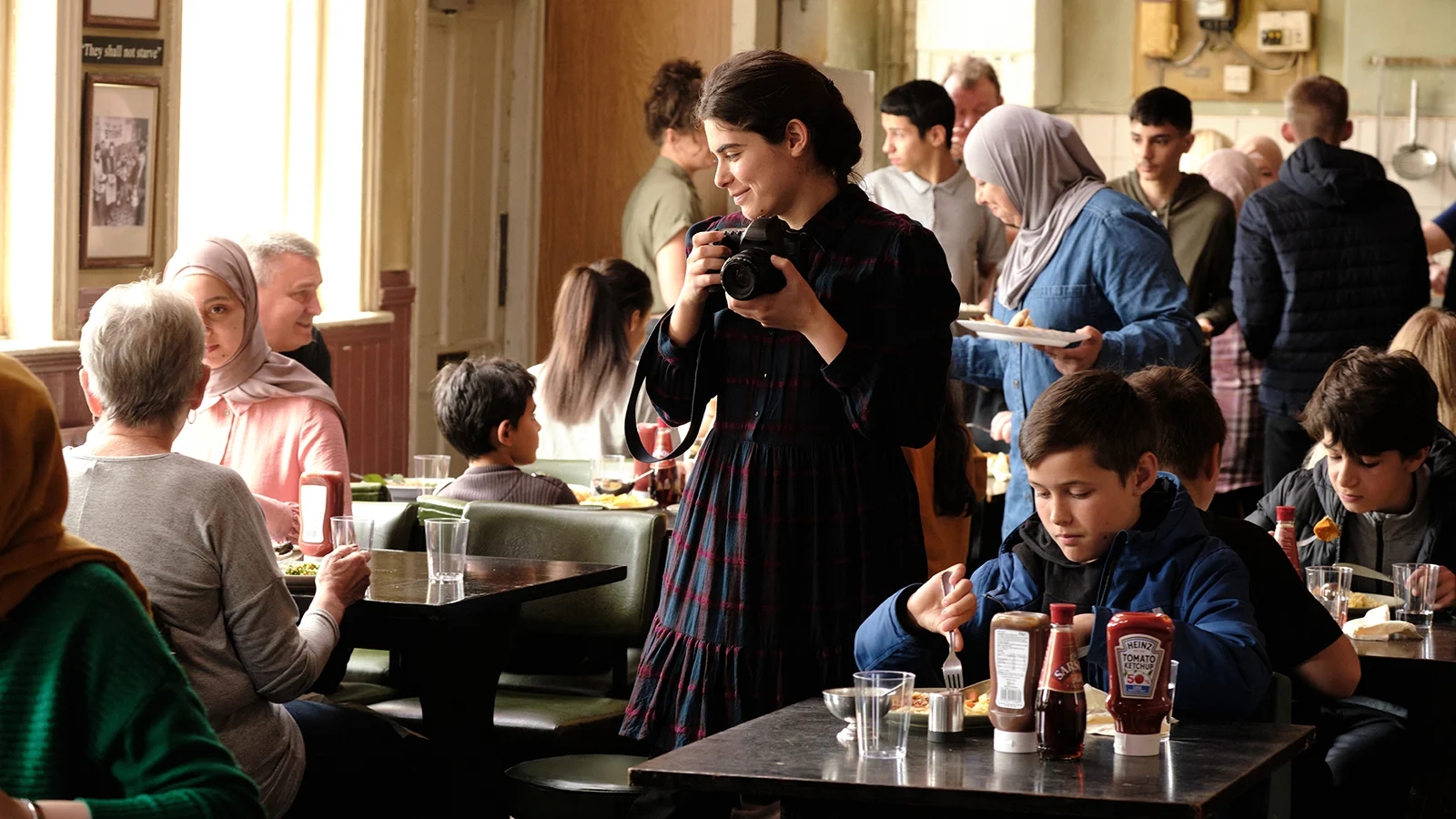The blight of recent times has taken its toll on TJ Ballantyne. His pub The Old Oak earns less business these days as mining jobs in County Durham have disappeared. It’s 2016. Brexit is in the air. The natives are surly, require scapegoats. Then Syrian refugees pour into the town, one of whom, Yara gets harassed by soccer hooligans for the audacity of carrying a camera. TJ intervenes. The yobs, stunned that a native would intervene on behalf of foreigners, slink off.
Thus begins an unlikely friendship, perhaps a movie friendship. As played by Dave Turner, a ringer for Joel Edgerton-meets-Brendon-Gleeson, TJ is a man for whom social Darwinism is a mortal sin. “If the workers utilized the power that they have, the confidence to use it, they could change the world,” he tells Yara. Now the workers can’t even stop out-of-towners from auctioning residential lots for eight grand — and without inspections. Yara, played by the keen first-timer Ebla Mari, is stuck in the thankless role of family translator and unofficial liasion between Syrians and town natives Their father, imprisoned by the Assad regime, they may never see again. Moved by a primal sense of decency, TJ takes an interest in Yara. In her he spots a stoked political energy. But TJ’s mates counter this energy with reaction. Assuming this is the answer, they push him into using the Old Oak’s sainted back room to hold a meeting where workers can vent; TJ, citing problems with wiring, doesn’t budge. Cinematographer Robbie Ryan isolates TJ in closeups at the bar pouring pints, jaw clenched. We don’t have to know the true reason for his reluctance.
Ken Loach (Poor Cow, The Wind That Shakes the Barley, Sorry We Missed You) directs his films as if writing essays with crisp topic sentences, a teacher’s dream. Simplicity isn’t obviousness. Directors like Loach, fascinated by hardscrabble British lives on the verge of poverty, have no American equivalents; you’d have to look at documentarians like Barbara Kopple and Frederick Wiseman. A viewer new to Loach’s movies might call him didactic. Well, we live in didactic times. The times have vitalized the socialist overtones in Loach’s work. When he and longtime screenwriter Paul Laverty make films like The Old Oak they rely on decades of observation. They’ve watched these people, listened to their complaints, their commonplaces, their rage. TJ’s oldest mate Charlie (Trevor Fox), a regular at the Old Oak, has so many perfunctory niggles about immigrants that they could’ve been eavesdropping on the white Cuban Trumpers whom I see at the Publix checkout line. These immigrants take 30 minutes to fill out forms. Schools are so overwhelmed with their children that there’s a shortage of teachers who know Arabic. They reserve their deepest hates for the liberal rich elites in Chelsea and Westminster who in Charlie’s mind call regular folk like him racists while refusing to carry their share of the burden. To understand is not to forgive, however. Loach does not.
For all his attention to the acerbity of local speech Laverty has a serious case of the clunks. A subplot involving TJ’s dog is the sort of contrivance that had me glancing at the floor in embarrassment. The ending may strike audiences as sentimental — if discrete family units who happen to live in a town becoming a community is a sentimental development. It serves as a reminder of how far we’ve drifted from the promise of trade unionism — hell, from an idea(l) of humanity. Should The Old Oak serve as Loach’s last will and testament, its embrace of compassion looks less futile than an earned conviction by an artist at work for six decades.
GRADE: B+

